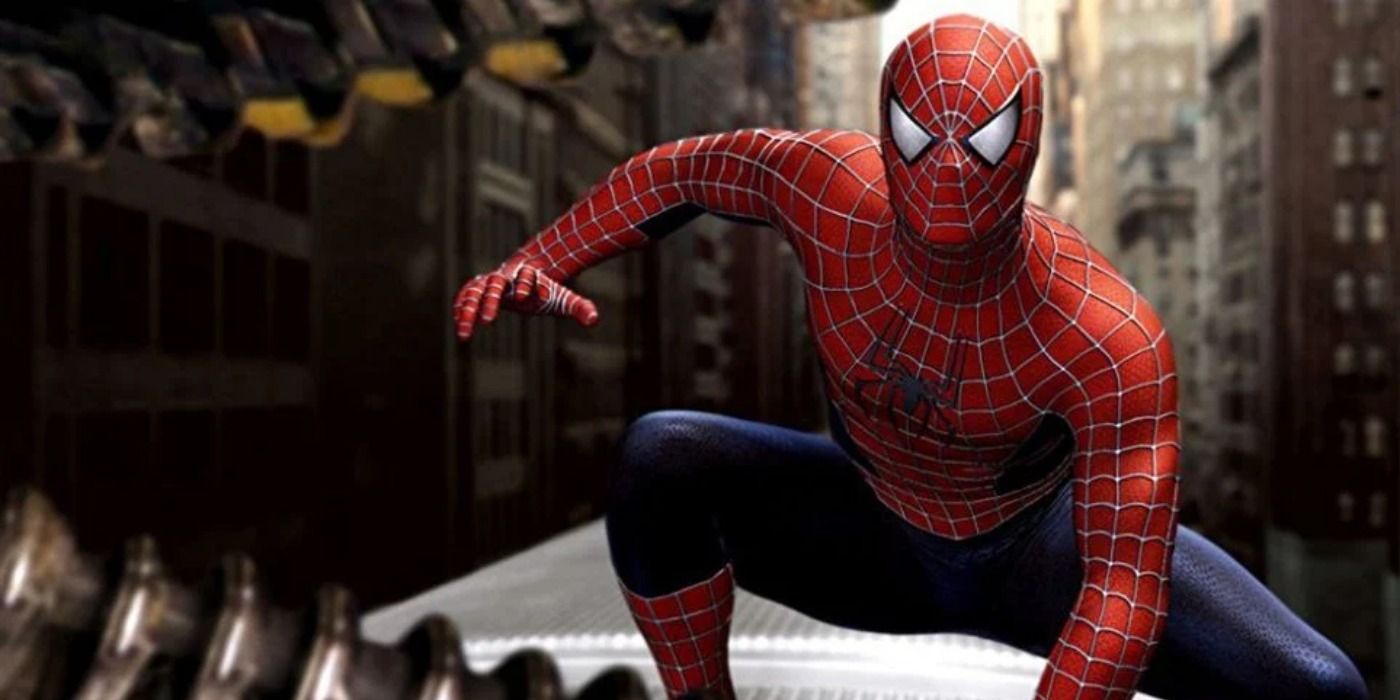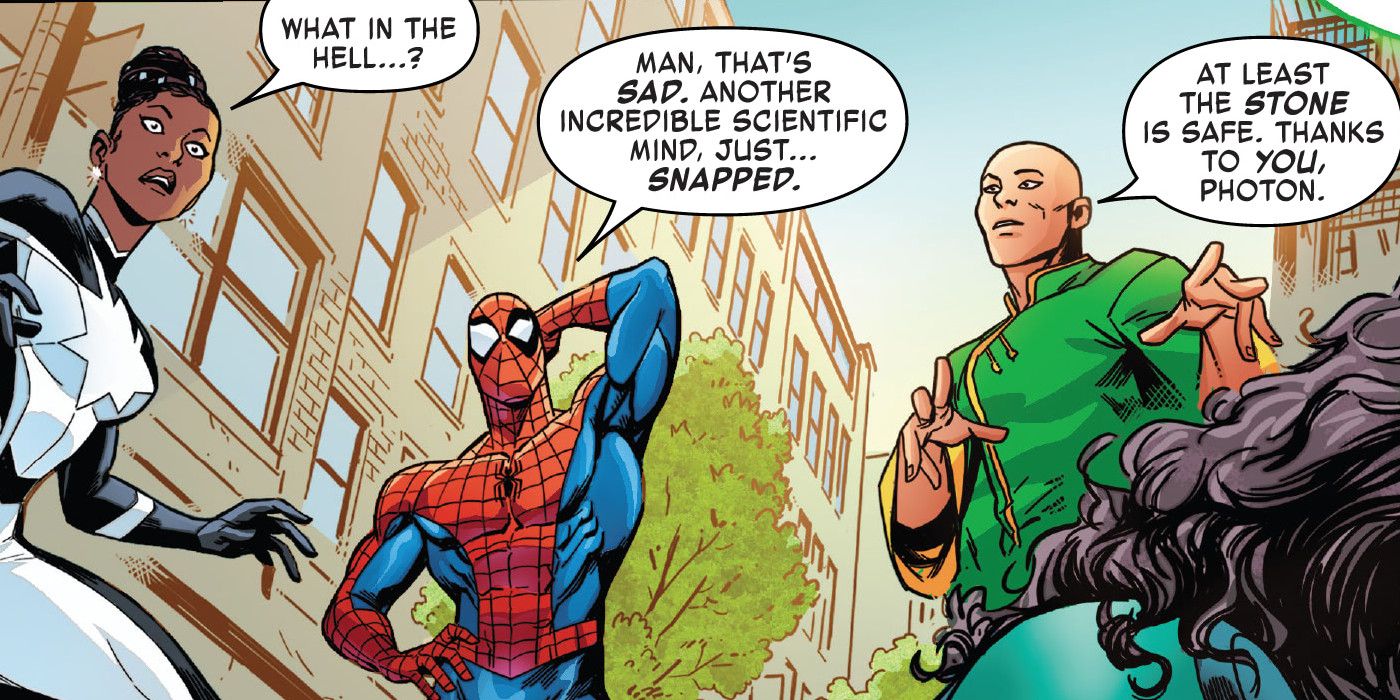Warning: Contains spoilers for Monica Rambeau: Photon #1Spider-Man has called out a huge Marvel Comics cliché, one that the MCU would be wise to avoid. In Monica Rambeau: Photon #1, the titular heroine teams up with Spider-Man to stop a dangerous villain–and when he learns this new menace was once a scientist, he makes a pointed observation about how many of them go mad or insane. The Marvel Universe is chock-full of mad scientists, to the point where it is cliché and if the MCU wishes to stay fresh and relevant, they should avoid it.
Photon is visiting Doctor Strange and Wong at the Sanctum Sanctorum when suddenly, they hear a loud boom. Wong and Photon go outside to investigate and discover a new villain named Hinge is responsible. Photon tries to fight Hinge, but they are able to contort their body to avoid her punches. Spider-Man arrives on the scene to help and eventually the two overpower the villain. With Hinge now down for the count, Wong unmasks them–and readers learn Spider-Man knew Hinge. Hinge’s real name is Doctor Yesenia Rosario, whom Spidey describes as “one of the most brilliant scientists” he's ever met. Hinge comes to and tries to attack again, but this time Wong casts a sleeping spell on her. Now passed out, Spider-Man calls the situation “sad,” saying, “another scientific mind…just snapped.” The issue is written by Eve Ewing, illustrated by Luca Maresca and Ivan Fiorelli, colored by Carlos Lopez and lettered by Clayton Cowles.
Mad Scientists Are A Classic Marvel Cliché
When Stan Lee, Jack Kirby and the rest came together to create the Marvel Universe, their characters had science-based origins, as did many heroes and villains in the Silver Age. With this emphasis on science-based heroes came science-based villains–namely extraterrestrials and mad scientists. Many of these mad scientists had been rejected by society for whatever reason, and they would take their issues out on the world. While mad scientists had been fixtures of comic books since the Golden Age, Marvel doubled down on it, creating characters such as Norman Osborn and Doctor Octopus.
Mad scientists are a cliché in not only comic books, but in fiction as a whole–and it is a trope the Marvel Cinematic Universe would be wise to avoid. Many of Marvel’s initial crop of mad scientists grew out of Cold War anxieties; the world was still reeling from the invention of nuclear weapons. Furthermore, at the time America was in a race with the Soviet Union to reach the moon first. Marvel creators tapped into these anxieties, creating villains who would go on to become iconic. However, today there is no hysteria over nuclear war and the public seems to have taken an apathetic attitude towards science in general. In order to best reflect this shift in attitudes, the MCU should avoid mad scientists–or at least put a fresh spin on them.
Today, in a world plagued by rampant economic inequality, billionaires are the perfect villains; Superman’s arch nemesis Lex Luthor is proof of this change, having gone from a mad scientist to a corporate warrior. Yet mad scientists continue to be villains, and in a world that is out of touch with science, their stock as villains has faded. Spider-Man points out that the Marvel Universe is crammed with them, and it is a cliché the MCU should avoid.
Monica Rambeau: Photon #1 is on sale now from Marvel Comics!


